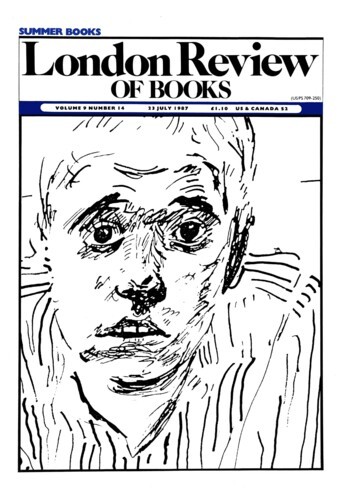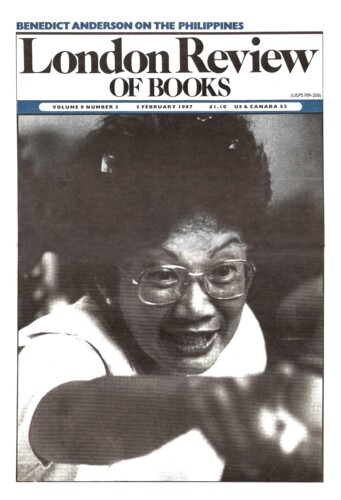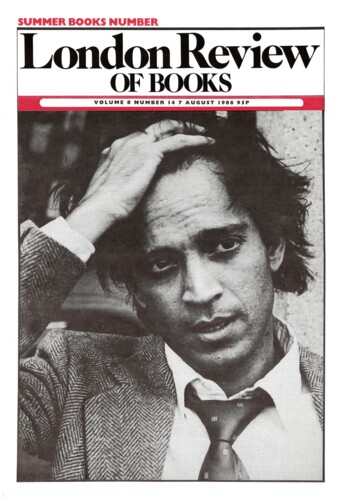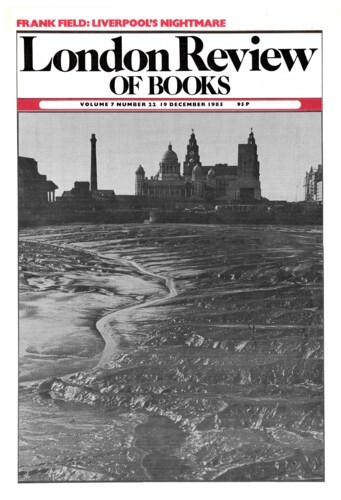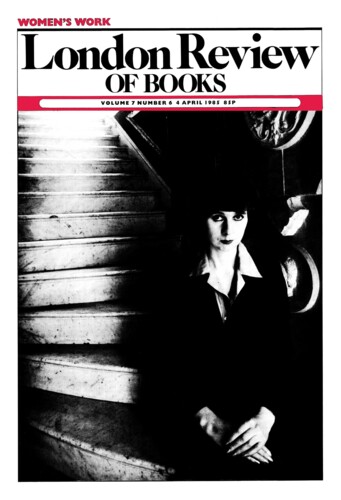Misbehavin’
Susannah Clapp, 23 July 1987
When the London Review of Books began to run a Diary in 1982, A.J.P. Taylor was one of its authors. He always delivered to an exact length, well before the deadline, and often in person. A new editorial assistant, handed copy by the small seventy-five-year-old in a deerstalker who had scaled the steep stairs to our earlier offices, decided he must be a Mercury messenger. In these Diaries Taylor wrote about the early days of CND, his contempt for the New English Bible, his delight in nude bathing, and his belief that if David Owen had stayed in the Labour Party he would have become its leader. All his columns were eagerly followed, but one series excited particular attention. He reported that his wife, the Hungarian historian Eva Haraszti, was in hospital, and chronicled the resulting ‘devastation’: his incompetence at bed-making, his inability to light the oven, the misery of his solitary meals. In the middle of reading one such bulletin, I rang the Taylors’ home to take his proof marks. Eva Taylor answered the phone: she was home and she was better. What had hospital been like? ‘Very interesting. But – I had homesickness.’ Had she perhaps kept a diary? ‘Of course.’ And here it is.’
